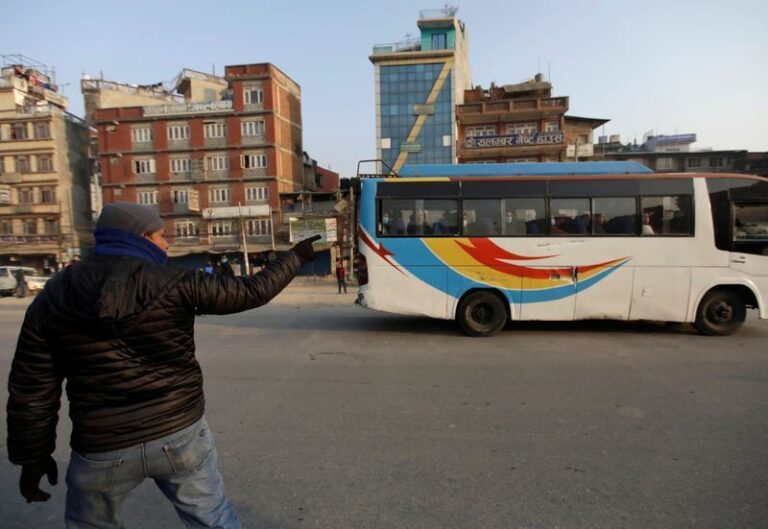
KATHMANDU (Reuters) – At least six people, including two former ministers, were injured when police lobbed tear gas shells and resorted to baton charges to break up a protest rally during a nationwide general strike in Nepal that was called by a faction of the ruling party on Thursday.
The strike was meant to help cement opposition against Prime Minister K.P. Sharma Oli for dissolving parliament and seeking fresh polls amid a pandemic-induced economic crisis.
“Protesters tried to vandalise cars and a police van, forcing police to resort to mild force in which six people including two police personnel were injured,” Bandhu Prasad Bastola, Dhanusa district administrator, told Reuters.
Two former ministers, Ram Chadra Jha and Matrika Yadav, who are also senior leaders of the rival faction of the ruling party, were among the injured in the temple town of Janakpur in Dhanusa district. It was not immediately known how serious their injuries were.
“They (former ministers) are being brought to Kathmandu by a helicopter for treatment,” said senior faction leader Pampha Bhusal, who, along with her colleagues, had declared the strike.
Police said at least 157 people were detained across the country to curb the violence.
The call to shut down businesses, shops and educational institutions was part of a protest campaign launched across the Himalayan nation, after Oli dissolved parliament on Dec. 20, citing a lack of cooperation from other leaders of his Nepal Communist Party (NCP).
Supreme Court judges hearing more than a dozen petitions challenging the legality of parliament’s dissolution are expected to give a verdict this month.
If they rule in Oli’s favour, elections have been scheduled in two phases, on April 30 and May 10.
The call for a strike came after Oli earlier this week appointed senior officials to constitutional bodies, including commissions on human rights and investigations into abuse of authority. Opponents in the NCP accused Oli of bypassing a requirement for appointees to be approved by parliament.
In late December, the Chinese Communist Party sent senior officials to Kathmandu to see if they could mend ties between the factions in a party regarded as friendly to Beijing.






